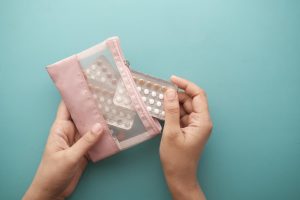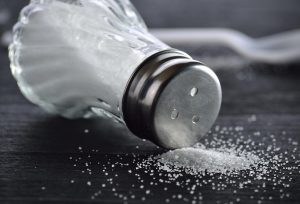As more and more advertisers continue to take advantage and play-up women’s insecurities– Dove’s ‘Real Beauty Sketches’ campaign, Special K’s new Fat Talk scheme commercial, and the Pantene Pro-V ‘Labels Against Women’ spot that first aired in the Philippines– we wonder, isn’t there a way to enforce the positive without highlighting the negative first?
If we look at the stats reported by these companies, we get the following:
Only 4% of women consider themselves beautiful– Dove
70% of men think women need to tone down their personalities to be accepted– Pantene Pro V
93% of women engage in Fat Talk– Special K
The through line of too many of these advertisements, masquerading as campaigns, is that women need to feel badly about themselves before they have the right to feel good (and, surprise, these kind of campaigns are only ever directed at women). Soul Pancake’s ‘Take a Seat – Make a Friend’ video is a good example of the opposite. It didn’t start out by claiming that 80% of people are lonely. But then again, Soul Pancake doesn’t have a product to sell.
The problem with this kind of marketing, is that unlike top-down economics, it actually has a trickle-down effect. The more companies push this kind of messaging, the more we engage the hostility. I don’t feel better after watching these videos, I feel, sad, and the sadder I feel, the more the ad pats me on the back, gives me a hug, and passes me a tissue to make sure that I’m OK.
Charging women with engaging certain behavior only reinforces feelings of negativity that the media pushed them to feel in the first place (for instance, Special K commercials have always focused on losing weight and being skinny). (Seriously, how is eating two bowls of cereal a day to lose weight a healthy, pro-positive body choice?) This kind of faux-concern is not a genuine push to improve social standards, but rather a means to an end– to sell units. Makes sense, we all know they need to make that dollar. Except while a company draws their end line of concern with quarterly earnings, the reverberations of such messaging are felt long after a campaign’s run. This messaging easily moves from screen to social circles in small aftershocks that over time wear down and crack foundations.
When I was in grammar school, I was like most little girls, knock-knee and skinny, playing double-dutch on the playground, but when puberty struck in 6th grade (or earlier for some) and the girls in my class started filling out, I stayed pretty ruler-like. This became really evident during those jump rope sessions. I stayed skinny enough that someone, I never found out who, tattled on me to our school nurse. She told the nurse that I didn’t eat during lunch and that I was anorexic. She was worried. I was eleven. The nurse informed my mother, who then informed the nurse, that this was absolutely not the case; her daughter ate plenty. But it didn’t matter what my mother said or how she defended my honor, I was made aware of my body in a way I had never been. I wanted a training bra, even though I didn’t need one. I wanted deodorant, even though I didn’t need it. In this case I needed a product to make myself feel better about my body, regardless of whether I needed it or not.
In my early twenties, I lost an unexplainable amount of weight despite a heavy, heavy caloric intake. As a result of my disproportionate weight loss/food intake, one of my friends told the other that she saw me take all of the laxatives under the sink. She wanted to make sure I was OK.
A few months later I got to make this phone call: I didn’t take the laxatives, I have Diabetes.
Jokes on you?
Except the joke is on all of us because women are inexplicably (well, partially explicable thanks to the media) cruel, to each other and to themselves, and when huge corporations feel fiscally compelled to dole out minutes of negative-positive messaging, they’re reminding us that these are the conversations that matter. Special K wants to ban “Fat Talk” by talking about fat talk. Crafty.
So no, we don’t have to laud companies that tug at our heart strings by tugging at and pointing out our tight pant strings first. We don’t have to praise conglomerates for breaking down gender stereotypes by calling attention to them. And we certainly don’t need to give a bunch of executives a standing round of applause for teaching us that we can only feel good after they make us feel awful.
Here is another statistic that someone hasn’t turned into an ad yet:
81% of 10-year-old girls are afraid of being fat. (Any takers?)
If campaigns were able to show that it wasn’t the American way to tear someone (aka a women) down first, maybe they could actually do some good and change the conversation.
Until then, I’m sticking with Cheerios and homemade soap.




-300x221.jpg)












